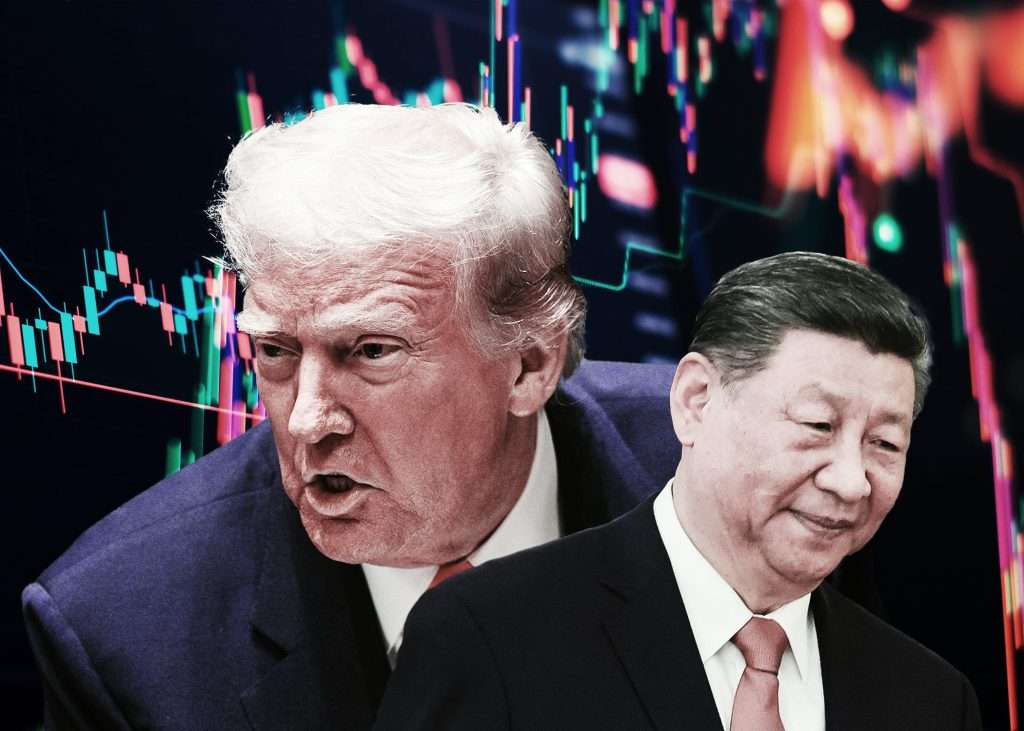Rare earth tensions ignite U.S-China trade clash

China sought to reassert control of the trade narrative on October 13, calling on the U.S to reverse its latest tariff warning as both sides edge toward a broader economic standoff. Reported by the Associated Press, the exchange marked another escalation in the long-running trade confrontation between the world’s two largest economies.
The tensions followed President Donald Trump’s threat to impose additional 100 percent tariffs on Chinese imports beginning November 1, a move driven by frustration over Beijing’s tightening of export controls on rare earth elements – materials vital to global technology and defence industries.
The move to restrict rare earth exports has already rippled through global supply chains. In September, automakers in Europe suffered production delays and temporary shutdowns following China’s new export curbs on certain rare earths and magnets. Officials in Beijing have described the measures as “non-discriminatory” and not targeted at any single country, yet their impact on European manufacturing has been immediate and costly.
Beijing’s response to 100 percent tariffs appeared to catch Trump off guard, who described the decision as “out of the blue.” Although the U.S president did not withdraw his tariff threat, he struck a more conciliatory tone on Truth Social, writing that “The U.S.A. wants to help China, not hurt it!!!”
China, however, showed little sign of backing down. Foreign Ministry spokesperson Lin Jian said “China urges the U.S to promptly correct its erroneous practices,” adding a warning: “If the U.S insists on going its own way, China will certainly take resolute measures to safeguard its legitimate rights and interests.”
Following this, the Commerce Ministry said in a statement posted online that “China’s stance is consistent,” and “we do not want a tariff war but we are not afraid of one.”
According to Bloomberg, Beijing has now widened the trade dispute beyond tariffs and technology into shipping and industry. The government announced new sanctions on the U.S units of South Korean shipping company Hanwha Ocean Co., barring Chinese firms and individuals from doing business with them. The move unsettled global markets, sending Hanwha Ocean’s shares down more than six percent while Chinese shipbuilders gained ground.
This is not the first time Beijing has leveraged its control over rare earths as a geopolitical tool. As reported by Maghrebi, China has repeatedly adjusted its export regulations in response to trade tensions, using its dominance on these critical materials to exert pressure on Washington and its allies.

Analysts view the latest restrictions as part of a broader tit-for-tat strategy in which the rare earths industry – once a niche segment of the global commodities market – has become central to the power struggle between the two powerhouses. By tightening export controls, Beijing is signalling that it can disrupt industries dependent on Chinese materials, from electric vehicles to defence technology, whenever its strategic interests are challenged.
The standoff highlights how deeply economic interdependence between Washington and Beijing can serve as both leverage and vulnerability. Analysts suggest that the dispute over rare earths may have implications far beyond tariffs, potentially shaping the rules and strategic dynamics of the next global industrial era.
With Trump still set to meet Xi Jinping in late October at the Asia-Pacific Economic Cooperation summit in Seoul, the upcoming engagement could become a pivotal moment for signalling intentions and assessing the prospects for de-escalation.
Associated Press, Bloomberg, Maghrebi.org, Reuters, Al Jazeera
Want to chase the pulse of North Africa?
Subscribe to receive our FREE weekly PDF magazine










